Questionhow many meal worms should i feed him a day?
AnswerCecilia,
Your beardie will eat only as much as he is hungry for. It is recommended to feed them as many as they can and will eat in a 10 minute period. If he is no longer hungry, he will stop eating. If he eats all of his worms, offer him more until he loses interest. Now, please consider that you should be feeding him a diverse diet and not just mealworms alone. Mealworms are actually supposed to be used sparingly because they are a very crunchy insect and their exoskeletons can cause digestive problems and clog up the lizard's intestines. I copied and pasted some really insightful information from anapsid.org, which is a veterinarian recommended source for reptile care. Please read the following to ensure you are providing an adequate diet.
Here is a little background info on feeding beardies:
As you know, bearded dragons are omnivores, voracious eaters of invertebrates and small vertebrates alike. They also forage for soft plant matter, including greens, fruits, and flowers.
The bearded dragons are omnivores, with plant foods comprising about 20 percent of their diet. Since these lizards consume a wide variety of invertebrates and small vertebrates in the wild, a variety of protein sources must be offered in captivity. Prey items such as appropriately sized cultured crickets, cockroaches, mealworms, king worms, and wax worms can be fed, along with pink mice. Make sure the invertebrates are freshly molted to reduce the amount of tough, indigestible exoskeleton the dragon will ingest; exoskeletons can cause intestinal impaction so the least amount ingested the better. As the dragon grows, it is better to feed him mice (pinks, fuzzies, crews, young adult) rather than mostly insects. Whole rodent prey is more nutritious - and will not cause the impaction that insect prey can.
Feed your invertebrate prey before feeding your dragon. Prey bought from pet stores are generally in dire need of a good meal, having subsisted on cardboard or bran for several days at least. Sprinkle or dust prey with a calcium supplement just before feeding them to your lizard 3-5 times a week (more for baby and pregnant dragons), and use a multivitamin supplement 2-3 times a week (more for babies and pregnant females). Pieces of fruits and vegetables, as well as food such as high-protein baby cereal mixed with reptile vitamins, tropical fish flakes, and rodent chow, all make suitable foods. Since smaller crickets are more nutritious than larger crickets (proportionately less exoskeleton) it is better to feed out more of the smaller ones than fewer of the big ones.
Plant matter includes a variety of shredded or torn vegetables and fruits such as green beans, orange-fleshed squash, carrots, escarole, parsley, mustard, dandelion and collard greens, raspberries, mango, and cantaloupe.
Sara J Gwerder
President
Raptor Rescue Iguana Sanctuary
Shreveport, LA
www.RaptorRescue.org

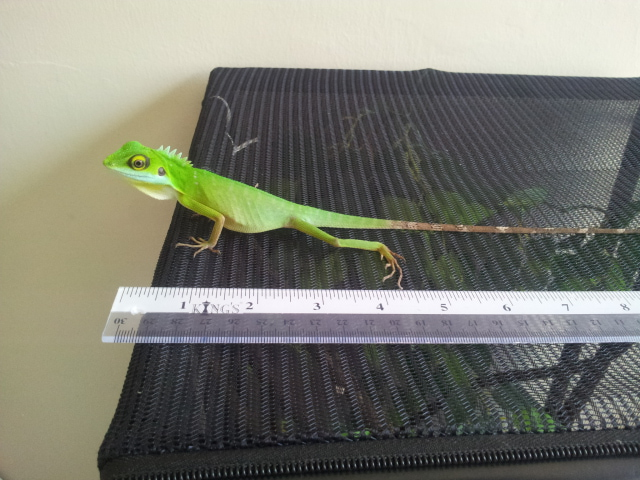 Lizard not eating :(
QuestionCrested Lizard
QUESTION: Hi,
First off,
Lizard not eating :(
QuestionCrested Lizard
QUESTION: Hi,
First off,
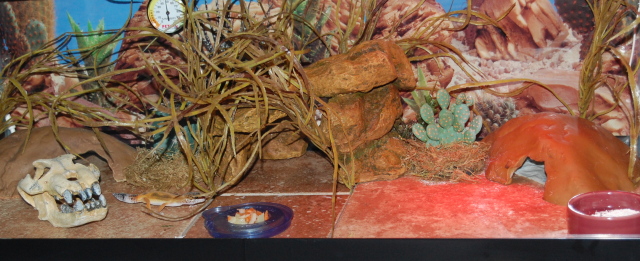 Add picture/ Gecko not eating
Question
Gecko Habitat
Sorry forgot to add picture.
A
Add picture/ Gecko not eating
Question
Gecko Habitat
Sorry forgot to add picture.
A
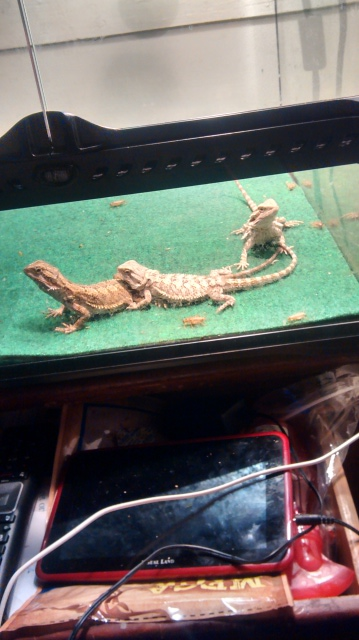 my bearded dragons
Questionmy dragons
QUESTION: Hello I have three
my bearded dragons
Questionmy dragons
QUESTION: Hello I have three
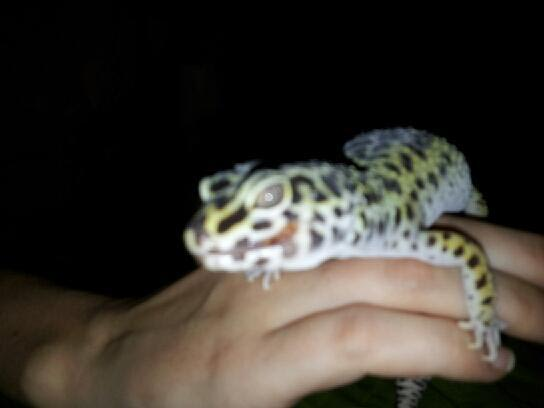 female leopard has scab on corner of mouth
QuestionQUESTION: Hi,my female leopard gecko has recent
female leopard has scab on corner of mouth
QuestionQUESTION: Hi,my female leopard gecko has recent
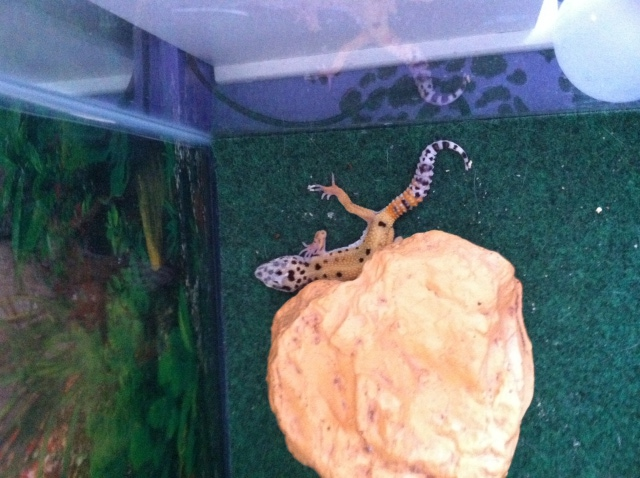 Leopard gecko possibly sick
Question
Geiko
My daughter got a leopard gecko
Leopard gecko possibly sick
Question
Geiko
My daughter got a leopard gecko